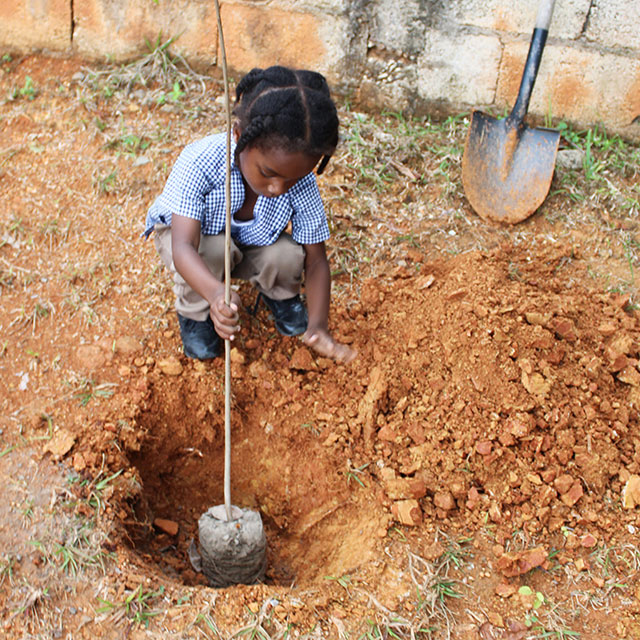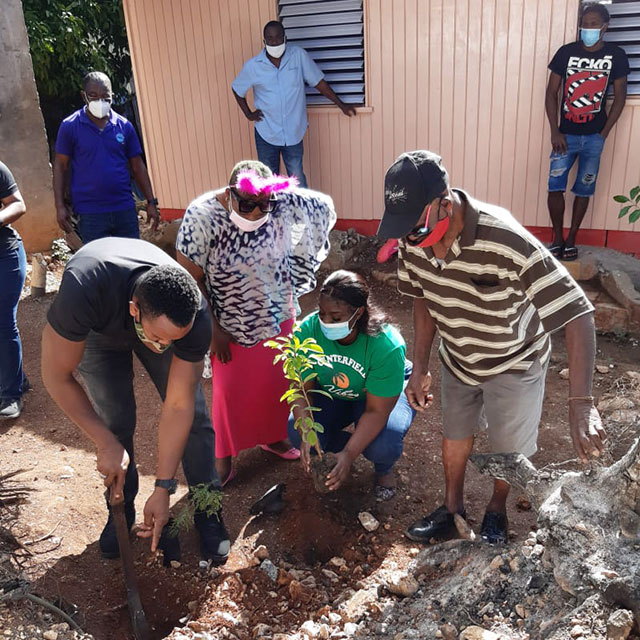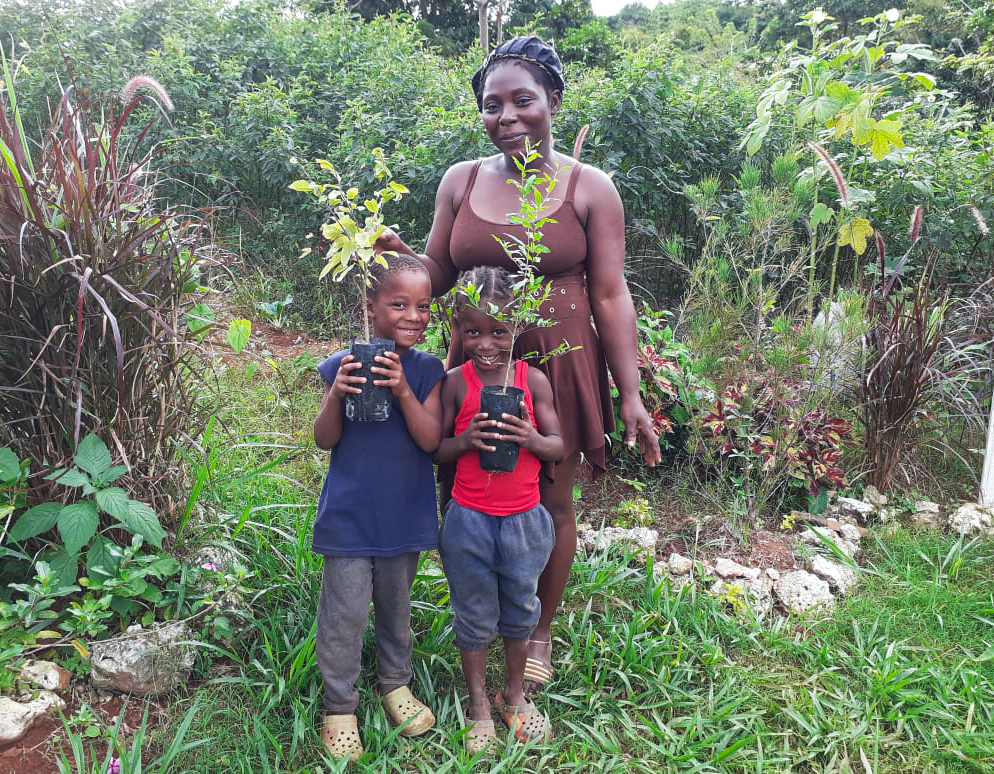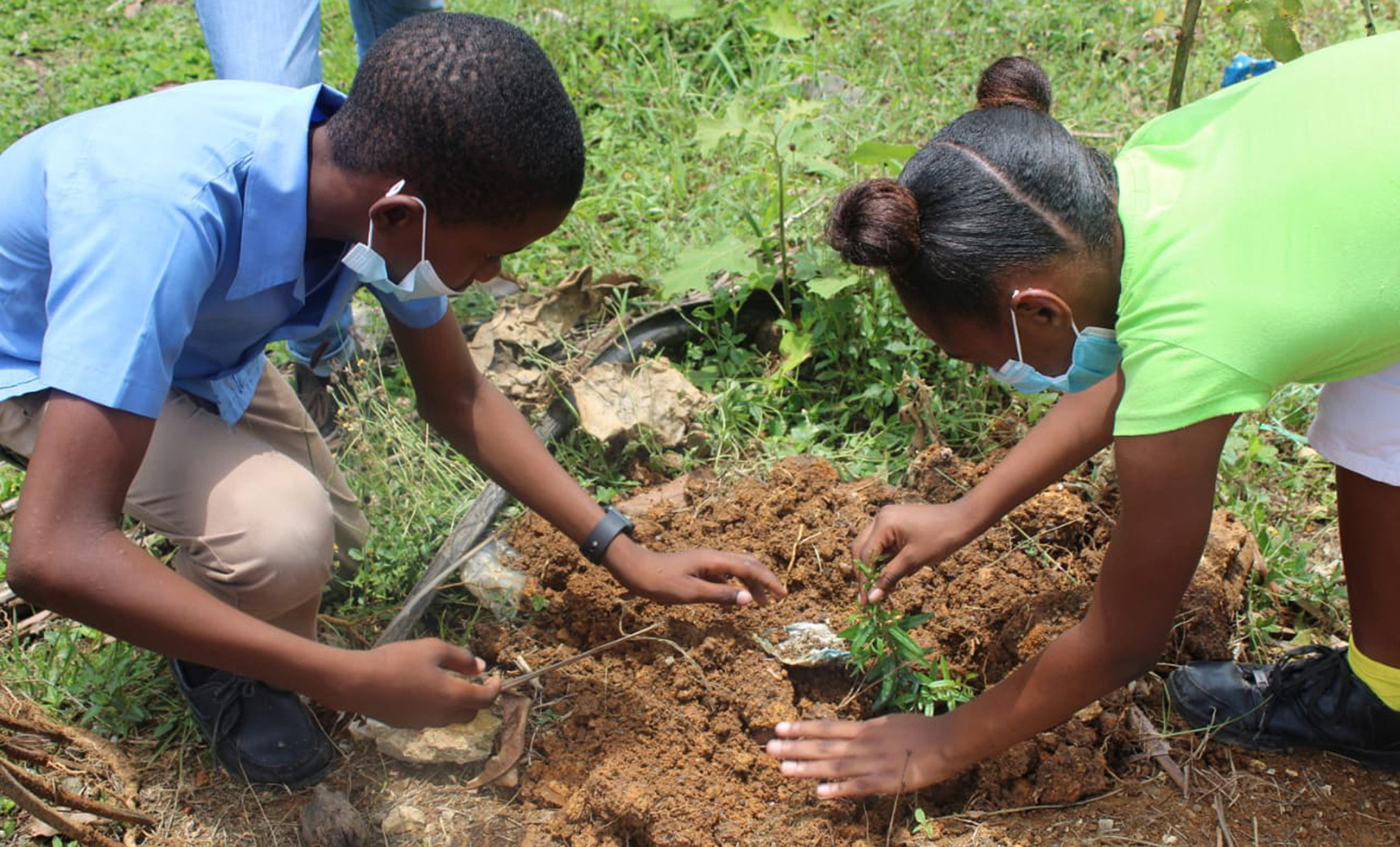Across the island of Jamaica, areas once covered with shade trees and lush fruit trees are shockingly barren. Deforestation can ravage communities over time when people living in poverty and lacking other resources cut down trees in their desperate search for wood to cook with and build shelter.
After years of tree felling, with no replanting or replenishing, the soil erodes and the land in these communities becomes less fertile.
The loss of trees also means the loss of birds, small animals and bees that are critical parts of healthy ecosystems.

Sowing Seeds of Sustainability
How do you begin to combat poverty? At Food For The Poor, we study poverty from a multidimensional, grass-roots perspective. Research in communities aims to identify the resources people are lacking and determine why they are lacking those resources. Then, in agreement with residents, long-term solutions are developed that fit each community like a glove – spiritually, culturally and economically.
Fruits For The Poor
One of those transformational solutions is the Fruits For The Poor project in Jamaica.
Since May 2021, more than 15,000 fruit trees have been planted in communities across this Caribbean island – all from seeds cultivated in FFTP-Jamaica’s nursery.

Who Gets a Tree?
Families, churches, schools and local charities that feed their neighborhoods are all recipients of seedling fruit trees through Fruits For The Poor to promote and protect the livelihood of each person.
Why Fruit Trees?
Bold initiatives to expand food security are critical a time when the global COVID-19 pandemic has pushed more people deeper into poverty, or into poverty for the first time. Planting fruit-bearing trees establishes a way for families and communities to sustain themselves for the long term.
Grow What You Eat
If a family grows what they eat, they can sell the fruit they don’t eat to earn additional income. No longer having to buy fresh fruit at the market means a family can use the money saved for other needs, like sending their children to school, getting health checkups or making repairs to their home.

Please give a gift today and support projects like Fruits For The Poor! Become a part of the long-term success and transformation of a community in need.

